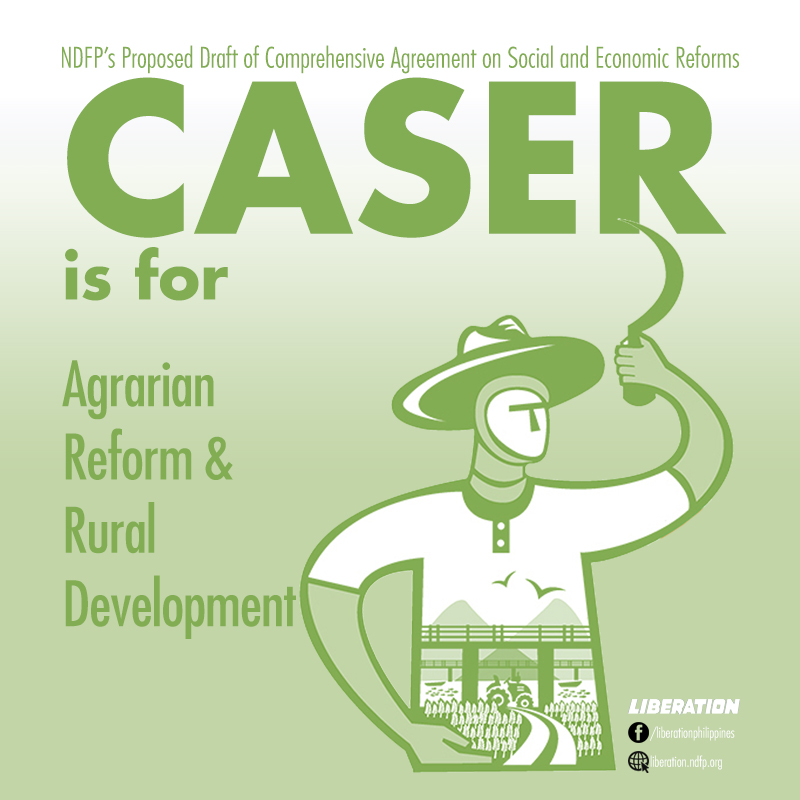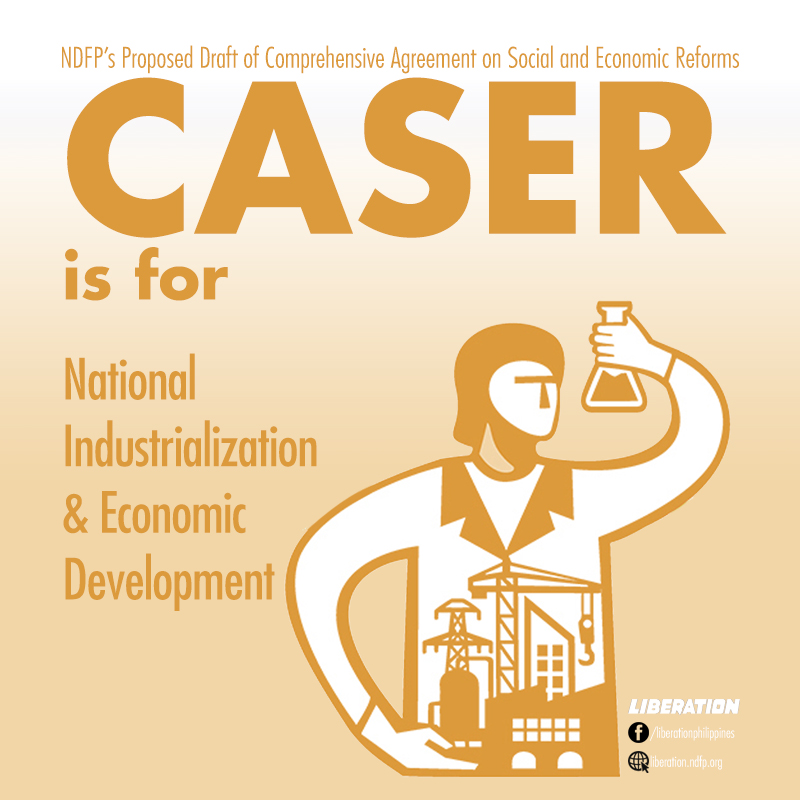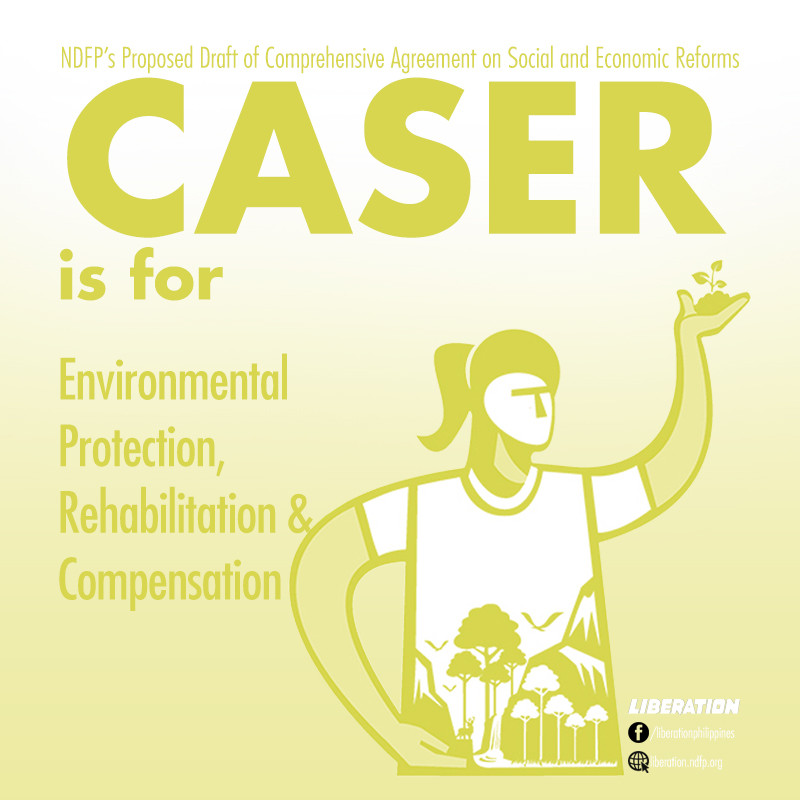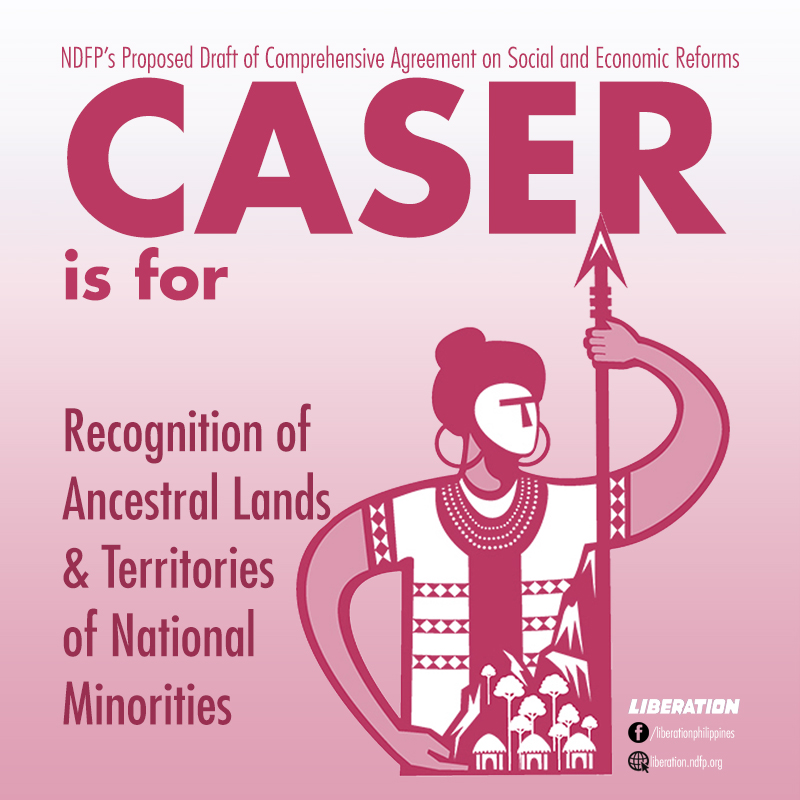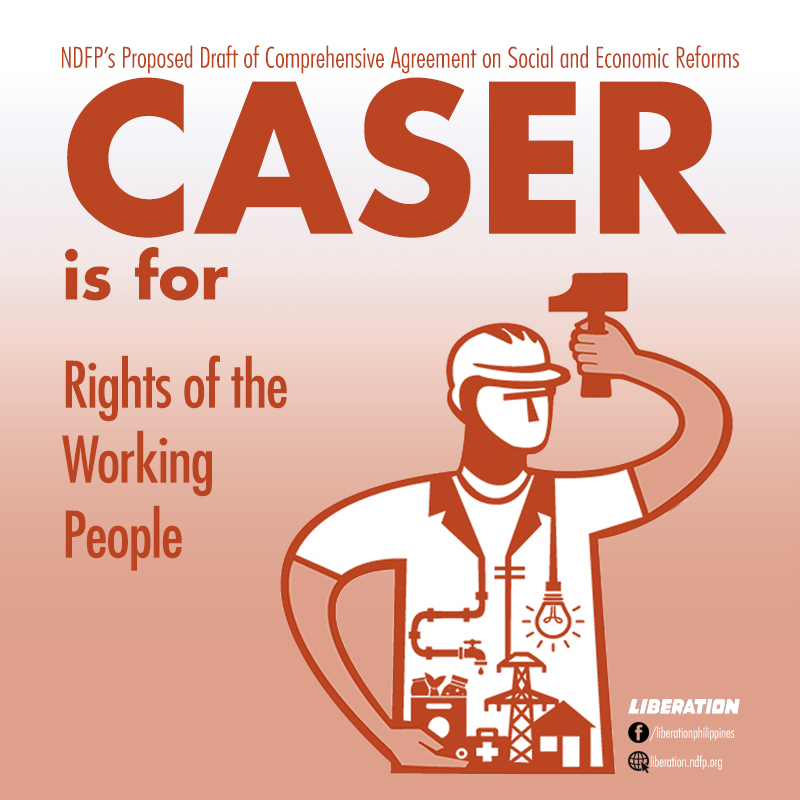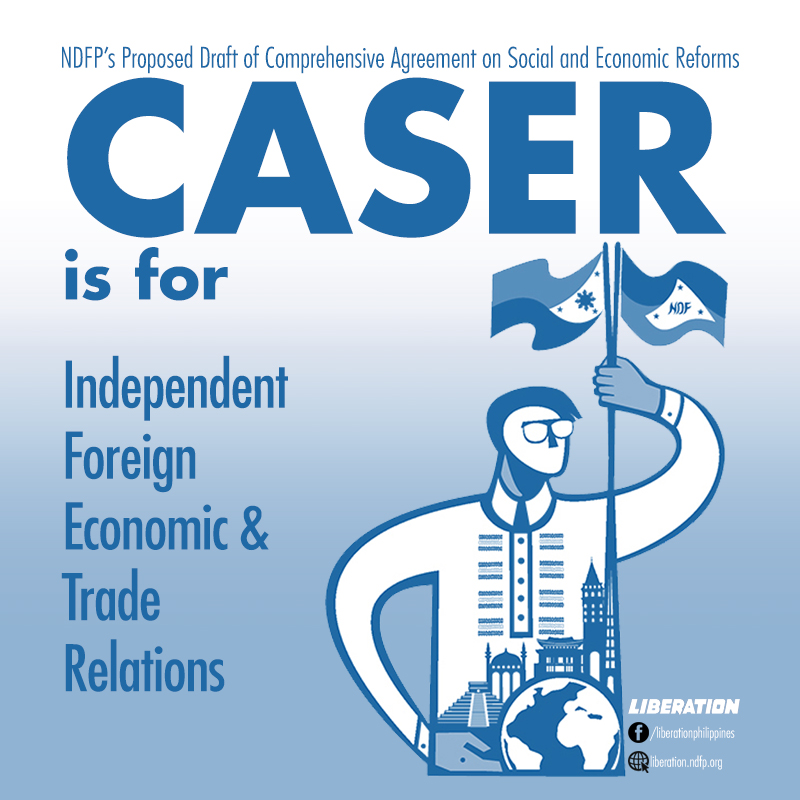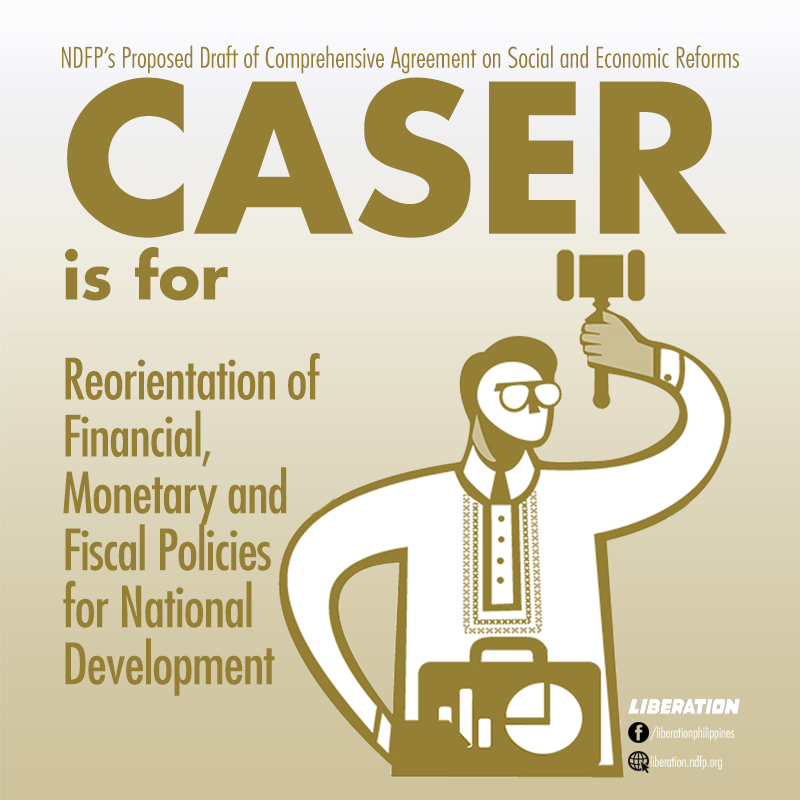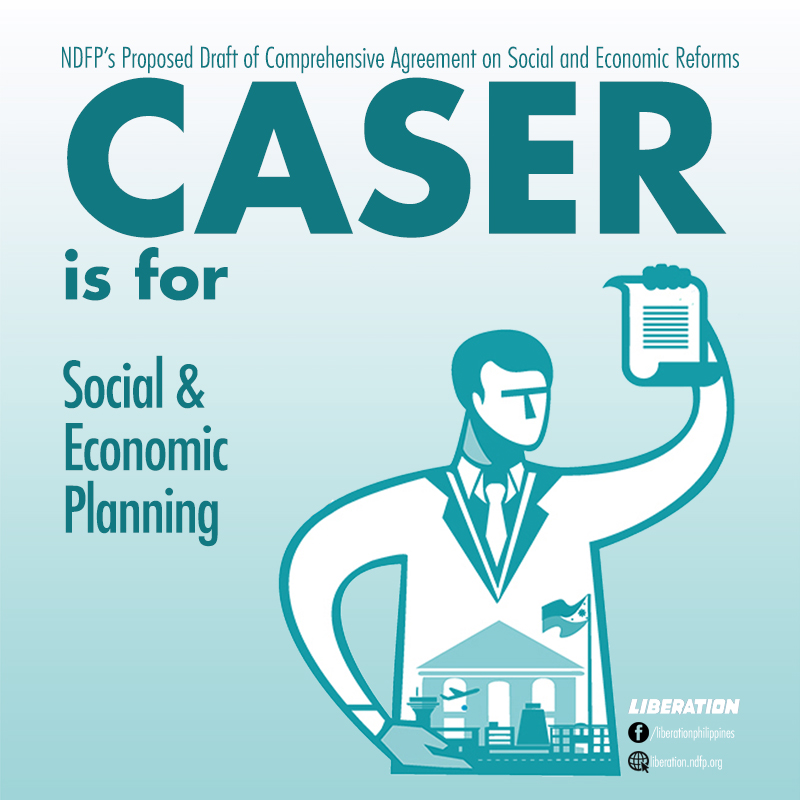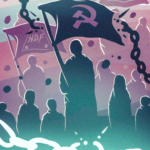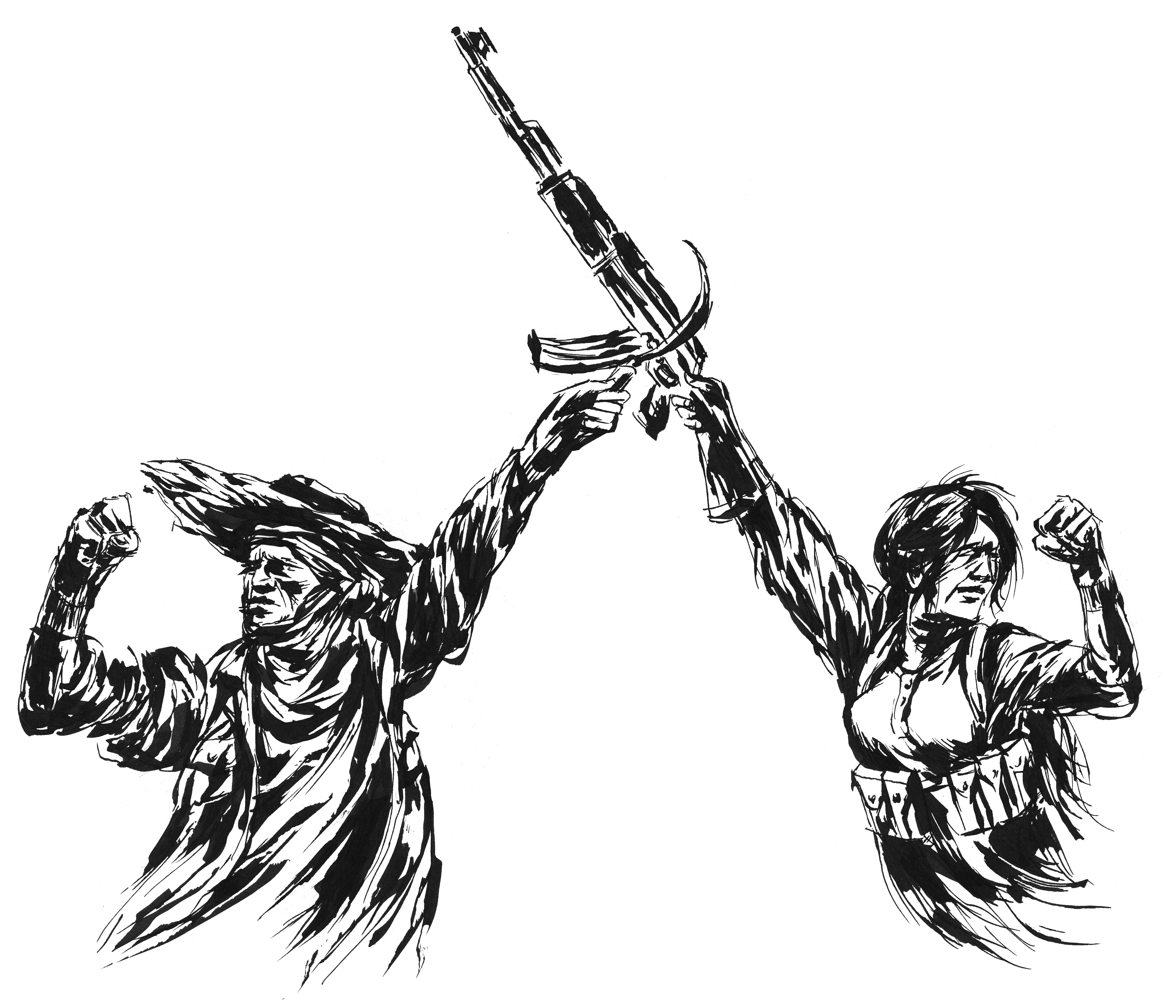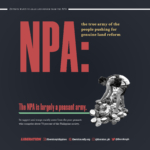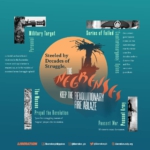Mindlessly Mishandling the GRP-NDFP Peace Negotiations
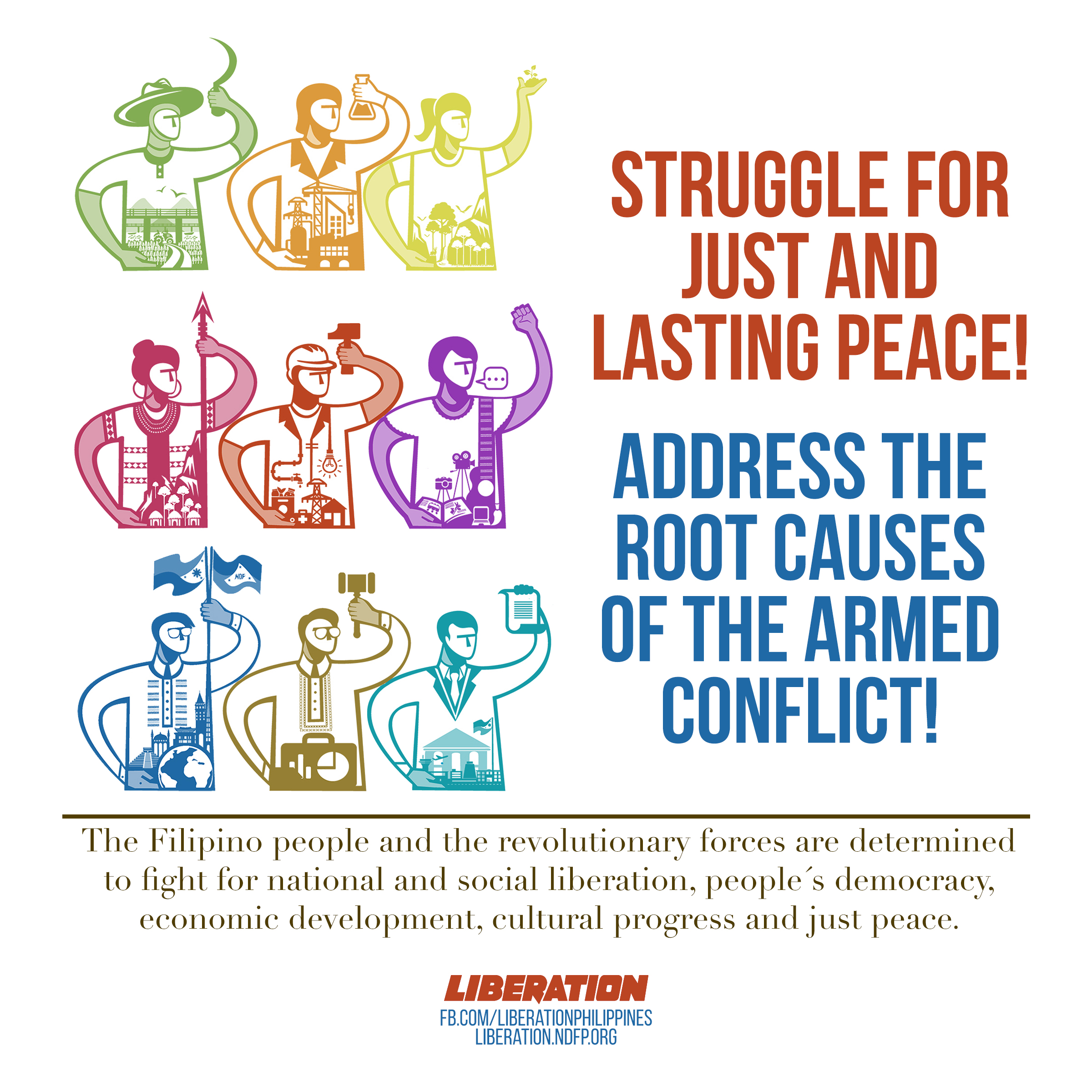
by Leon Castro
Like a poker game that he plays all by himself, whimsically rigging the rules, is how Rodrigo R. Duterte now apparently treats the GRP-NDFP peace negotiations. He has mindlessly cast aside all the hard work that both his government’s negotiating panel and that of the National Democratic Front of the Philippines (NDFP) have painstakingly undertaken.
Twice did Duterte arbitrarily cancel the fifth round of formal negotiations, in May and August 2017. But in both instances (as he had done earlier) he subsequently resorted to back-channel talks and agreed to continue the negotiations.
Up till the last minute, all looked rosy for the peace talks. In two discreet back-channel discussions in October and early November—to which Duterte had given explicit go-signal—the GRP and NDFP panels worked furiously to hammer out three draft documents. They had agreed, at the minimum, to refine and initial the documents at the fifth round and, at the maximum, to finalize and sign them at the sixth round in early 2018. The heads and members of both panels were already in Oslo, Norway, when Duterte’s order to cancel the talks came.
The three draft documents were: a draft agreement on agrarian reform and rural development and on national industrialization and economic development (the prime aspects of a Comprehensive Agreement on Social and Economic Reforms or CASER); a draft Coordinated Unilateral Ceasefire Agreement; and a draft General Amnesty for political prisoners.
Had the fifth round of formal negotiations proceeded and achieved its set objectives, 2017 would have ended with high hopes for continuing peace negotiations. And the Duterte government would have looked good in the eyes of the Filipino people.
Hundreds of hours of meetings cum negotiations by the Reciprocal Working Committees for Social and Economic Reforms (RWCs-SER) went into the drafting of the first document, which could have accelerated the entire peace process towards addressing the root causes of the nearly 50 years of armed conflict and attaining just and lasting peace in the country.
Common agrarian reform and national industrialization drafts
Over seven months of peace talks with four formal rounds of negotiations, the NDFP and the GRP panels were able to forge ahead in crafting common drafts for agrarian reform and rural development and for national industrialization and economic development. They held bilateral meetings during the second, third and fourth rounds—in Oslo, Norway (October 7-8, 2016); Rome, Italy (January 22-24, 2017); and Nordwijk an Zee, The Netherlands (April 4-5, 2017), respectively. In addition, there were no less than 10 bilateral meetings in the Philippines and abroad by the NDFP and GRP RWCs-SER between April 25 and November 17 last year.
On agrarian reform and national industrialization, there were nine sections in the common draft signed in Manila by the RWCs last November 20 and witnessed by the Royal Norwegian Government third party facilitator. These are:
Free distribution of land to tillers, farmers, farmworkers and fisherfolks and writing off of the arrears in amortization payments by earlier land reform beneficiaries;
The agreement includes coverage of plantations and large-scale commercial farms with leasehold, joint venture, non-land transfer schemes (e.g. stock distribution option);
- Immediate and expedited installation of farmer beneficiaries;
- Implementation of agrarian support services on production, harvest, post-harvest, insurance, credit and free irrigation;
- Elimination of exploitative lending and trading practices;
- Fisheries and aquatic resources reforms;
- National land and water use policy aligned with agrarian reform;
- Develop rural industries and domestic science and technology; and
- Building of rural infrastructure, such as irrigation, post-harvest, transport, communication, power facilities.
Signed on the same day, the NDFP and the GRP RWCs common draft on national industrialization listed 10 agreed-on sections, as follows
- Use of the term “national industrialization”;
- Explicit mention of economic planning;
- Development of specific industries, industrial sectors, and industrial projects;
- Nationalization of public utilities and mining;
- “Filipinization” of minerals processing and trade;
- Regulation of foreign investment;
- State intervention and regulation;
- Creation of workers’ councils;
- Breaking foreign monopoly control of industrial technologies; and
- Financing through higher taxes on the rich and lower on poor, as well as revenues from gambling, luxury goods, tobacco/alcohol, and tariffs. The parties also agreed to set up an industrial investment fund.
The agrarian reform and rural development and the national industrialization and economic development accords, are parts of the prospective Comprehensive Agreement on Social and Economic Reforms (CASER) Part III, under the title Developing the National Economy. These are mutually acknowledged by the NDFP and the GRP as the most important aspects of the peace negotiations. When finally approved by the principals and implemented, they are expected to alleviate poverty and inequality in the country—addressing the root causes of the armed conflict.
From both sub-agreements, the social and economic reform negotiations are expected to move on to the next issues, which are environmental protection, rehabilitation and compensation. The other parts of the CASER agenda include the following:
Part IV. Upholding people’s rights
A. Rights of the working people
B. Promoting patriotic, progressive and pro-people culture
C. Recognition of ancestral lands and territories of national minorities
Part V. Economic sovereignty for national development
A. Foreign economic & trade relations
B. Financial, monetary & fiscal policies
C. Social & economic planning
Part VI. Overall implementing mechanism
Part VII. Final provisions
Negotiations on the above issues are expected to be easier and faster, compared with those on agrarian reform and national industrialization which are deemed to be the hardest part of the entire negotiations.
Volatile GRP president
Apparently, all it took for Duterte to mindlessly cast aside these great achievements of the negotiations was his seeing on television militant activists protesting US President Donald Trump’s visit to the Philippines for the Asean summit last November. Were imagined personal slights arising from such protest action against one he probably considered a soul mate, more important to him than assiduously working to achieve peace?
Not long after seeing ASEAN protest videos on television, Duterte ordered his negotiators to cancel “all planned meetings with the CPP/NPA/NDFP.” Subsequently, he issued Proclamation 360 (November 23) terminating the GRP-NDFP peace talks. This was followed by Proclamation 374 (December 5) declaring the Communist Party of the Philippines and the New People’s Army (CPP-NPA) as “terrorist organizations” under both the Human Security Act of 2007 (RA 9373) and the Terrorism Financing Prevention and Suppression Act of 2012 (RA 10168).
Under the law, the proscription of the CPP and NPA as terrorist organizations doesn’t instantly take effect. The government needs to first file a petition with a Regional Trial Court to proclaim the CPP and NPA as terrorist organizations, which petition will have to undergo hearings before the court can issue a ruling. Yet Duterte’s proclamation and his military minions’ relentless campaign to slander the revolutionary organizations have opened the gates to more human rights violations, as happened in his notorious Oplan Tokhang against suspected drug users and peddlers.
His ordering the Armed Forces of the Philippines (AFP), the Philippine National Police (PNP) and the reactionary government’s intelligence branches to arbitrarily list down suspected officers and members of underground revolutionary organizations and of their alleged aboveground “fronts” can only be interpreted as orders for increased intimidation, abduction, torture and murder of legal democratic activists and other civilians.
In the latter part of 2017, Duterte did these things that expose himself as a fraud and a liar disinterested in peace as well as a tyrant in the exact mold of his idol Ferdinand Marcos.
NDFP determined to fight for just peace
Duterte’s lies and slander against revolutionary organizations, however, failed to gain traction among the Filipino people. The people have become aware of and disgusted over Duterte’s mass murder of suspected drug users and peddlers. More and more have also wisened up to his obvious subservience to capitalist and foreign interests, plunder of the environment, attacks against peasant and national minority communities, and his own family’s connections with underworld groups. And his lies against the revolutionary forces are increasingly being dismissed as hot flashes of a drug-addled mind.
NDFP chief political consultant Jose Maria Sison has remarked that the US-directed Duterte regime is daydreaming that it can discredit and destroy the sovereign revolutionary will of the Filipino people by proscribing the revolutionary forces as terrorist organizations, by requiring them to submit themselves to the sham processes of the reactionary state, and by unleashing gross and systematic crimes of terrorism and human rights violations.
The Filipino people and the revolutionary forces, he said, are determined to fight for national and social liberation, people´s democracy, economic development, cultural progress and just peace.
While the Duterte fascist regime may have terminated the GRP-NDFP peace negotiations, Sison pointed out, “it cannot be too sure that it will last long [in power] because the Filipino people and even those in the GRP detest the monstrous crimes of the regime, especially mass murder, corruption and puppetry to the US.” The crisis of the ruling system continues to worsen and the resources of the regime for violence and deception are limited.
